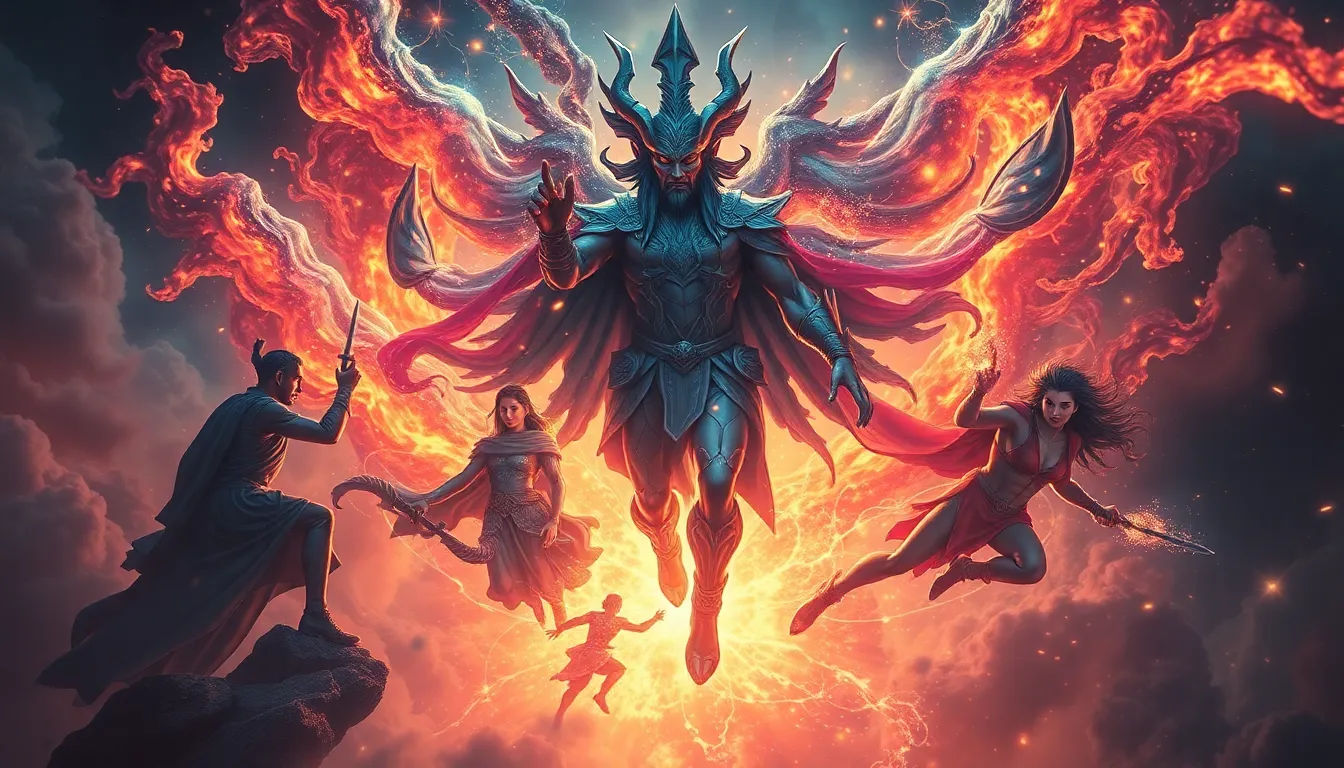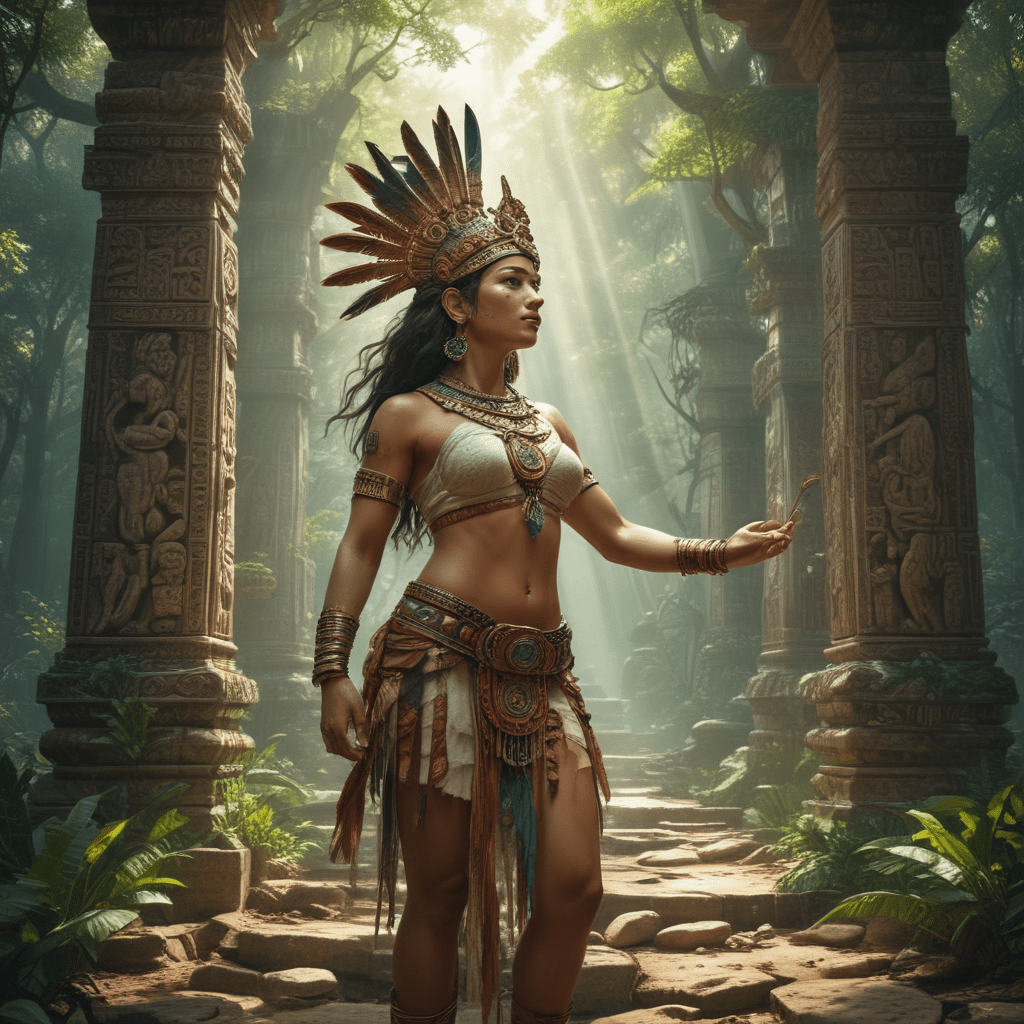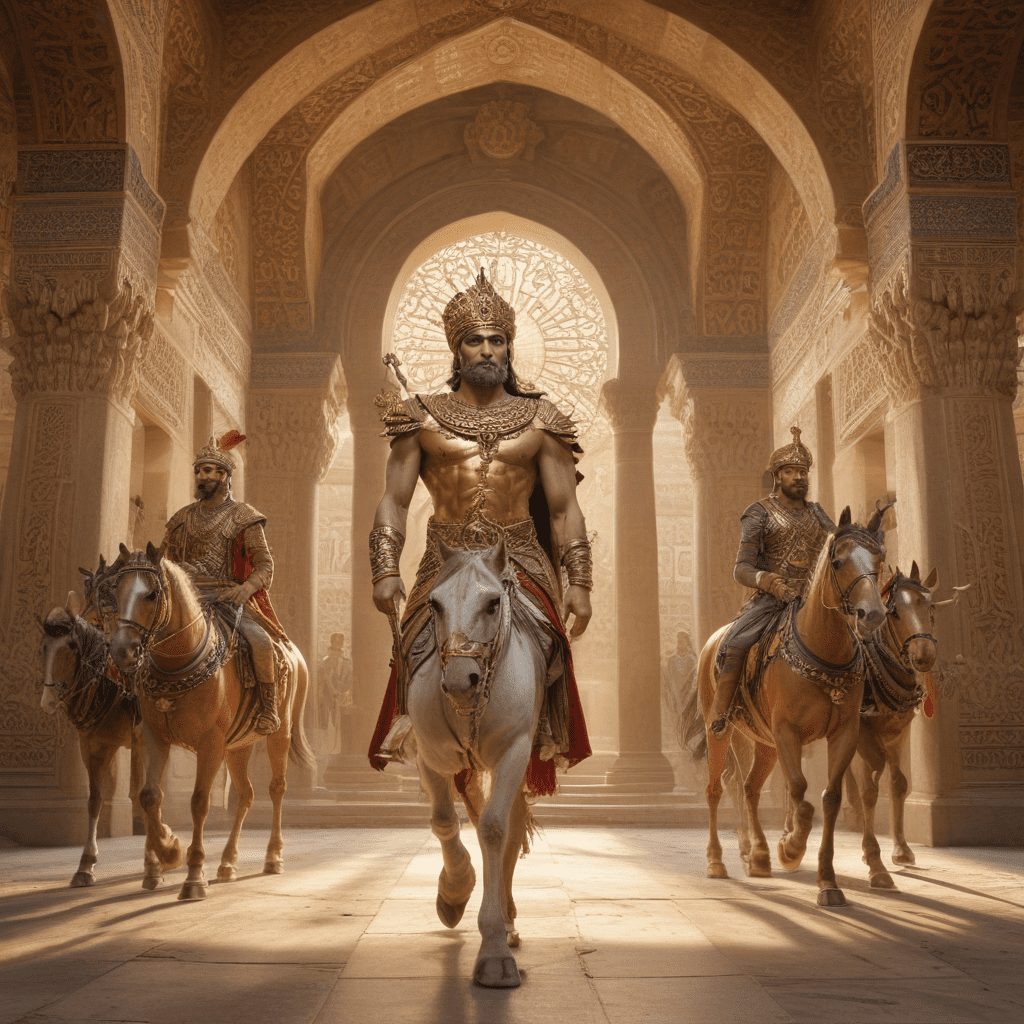The Sacred Horse: The Spirit of Freedom in Folklore
I. Introduction
The concept of the sacred horse is deeply embedded in various cultures around the world. Throughout history, horses have not only been companions and laborers but have also held significant spiritual meanings. In many traditions, the horse symbolizes not just freedom, but also strength, nobility, and a connection to the divine.
This article aims to explore the symbolism of the sacred horse within folklore, examining its historical significance, spiritual representations, and its enduring legacy as a symbol of freedom across cultures.
II. Historical Significance of the Horse
A. The domestication of horses and their role in human civilization
The domestication of horses, which began around 3500 BC, marked a pivotal moment in human history. Horses transformed transportation, agriculture, and warfare, enabling civilizations to expand and thrive. Their speed and endurance made them invaluable companions in human endeavors.
B. Horses in ancient societies: symbols of power and status
In ancient societies, horses were often seen as symbols of power and status. Rulers would ride magnificent steeds to convey their strength and dominance. In many cultures, owning a horse was a sign of wealth, and horses were frequently featured in art and literature as emblems of nobility.
C. The evolution of horse symbolism through the ages
As societies evolved, so too did the symbolism of horses. From representing war and conquest to embodying peace and harmony, horses have adapted their meanings to reflect the values and beliefs of different eras. Their portrayal in folklore and mythology has also shifted, showcasing their multifaceted roles in human culture.
III. The Horse as a Spiritual Being
A. Mythical representations of horses in different cultures
Throughout history, horses have been depicted as mythical beings in various cultures. They often appear in legends as creatures with extraordinary powers, guiding heroes on their journeys or serving as divine messengers.
B. Horses as messengers between the earthly and spiritual realms
In many traditions, horses are considered intermediaries between the earthly and spiritual realms. They are believed to carry the souls of the deceased to the afterlife or to convey messages from the gods to humans, emphasizing their sacred status.
C. Case studies: Pegasus, Sleipnir, and other mythological horses
- Pegasus: In Greek mythology, Pegasus is a winged horse that symbolizes inspiration and the pursuit of knowledge.
- Sleipnir: The eight-legged horse of Norse mythology, Sleipnir is associated with Odin and represents speed and the ability to traverse different realms.
- Hippocampus: A sea horse from Greek mythology, often depicted as a creature that connects the world of water and land.
IV. The Sacred Horse in Indigenous Cultures
A. The role of the horse in Native American folklore
For many Native American tribes, horses represent freedom, strength, and a connection to the spirit world. They are integral to various ceremonies and are often seen as sacred beings that embody the spirit of the land.
B. Horses in Celtic mythology and their connection to freedom
Celtic mythology features horses as symbols of freedom and transformation. The Celts believed that horses were linked to the Otherworld and that they possessed magical powers, often depicted in stories of legendary heroes.
C. The spiritual significance of horses in Mongolian culture
In Mongolian culture, horses are central to nomadic life and are revered as sacred animals. The bond between the Mongolian people and their horses is profound, with horses seen as companions and vital to their way of life.
V. The Horse as a Symbol of Freedom
A. The connection between horses and the concept of freedom in folklore
Horses have long been associated with freedom in folklore. Their ability to roam vast landscapes and their untamed spirit make them powerful symbols of liberation and independence.
B. Stories of horses representing personal and national liberation
Many stories and legends feature horses as symbols of liberation. For example, the wild Mustangs of the American West represent the spirit of freedom and resilience, while in literature, characters often find their liberation through the bond with a horse.
C. The horse as a metaphor in literature and art
The horse frequently appears as a metaphor in literature and art, representing themes of freedom, adventure, and the journey of life. Artists and authors have used the imagery of horses to explore deep emotional and philosophical concepts.
VI. Folklore and Legends: The Sacred Horse in Action
A. Famous folktales featuring sacred horses
Numerous folktales across cultures feature sacred horses that embody wisdom, strength, and freedom. These stories often highlight the bond between humans and horses, showcasing the transformative power of this relationship.
B. The narrative of the horse in various cultural legends
In various cultural legends, horses play pivotal roles in quests and journeys, serving as companions and guides for heroes. These narratives often reflect societal views on freedom and the pursuit of one’s destiny.
C. The impact of these stories on societal views of freedom
The stories of sacred horses have influenced societal views on freedom, inspiring individuals to seek their own paths and embrace their inner strength. They serve as reminders of the importance of courage and the desire for liberation.
VII. The Sacred Horse in Modern Culture
A. Representation of the horse in contemporary literature and media
In modern literature and media, horses continue to represent freedom and adventure. From novels to films, the portrayal of horses often evokes themes of personal growth and the quest for identity.
B. The horse in modern spiritual practices and symbolism
Today, horses are often incorporated into spiritual practices, symbolizing freedom, strength, and the journey of the soul. Horse therapy and equine-assisted healing have gained popularity, showcasing the therapeutic bond between humans and horses.
C. The continued legacy of the sacred horse in modern society
The legacy of the sacred horse persists in modern society, where they are celebrated in various forms of art, literature, and cultural festivals. The reverence for horses remains a testament to their enduring significance as symbols of freedom and spirit.
VIII. The Horse and Environmental Freedom
A. The interconnectedness of horses and nature in folklore
Folklore often highlights the connection between horses and the natural world. Stories of wild horses running free in open landscapes symbolize the harmony between nature and the spirit of freedom.
B. Symbolism of wild horses and their representation of untamed freedom
Wild horses are powerful symbols of untamed freedom, representing the essence of a life unbound by societal constraints. They embody the wild spirit of nature, inspiring awe and admiration.
C. Conservation efforts and the cultural significance of wild horse populations
Conservation efforts aimed at protecting wild horse populations are crucial for preserving their cultural significance. These efforts not only safeguard the horses but also maintain the stories and traditions that celebrate their spirit of freedom.
IX. The Future of the Sacred Horse in Folklore
A. Evolving interpretations of the sacred horse in contemporary contexts
As society evolves, so do interpretations of the sacred horse. Contemporary narratives may reflect modern values and concerns, adapting the symbolism of the horse to relevant themes of freedom, identity, and connection to nature.
B. The role of storytelling in preserving the spirit of the horse
Storytelling remains a vital tool for preserving the spirit of the horse. By sharing tales of sacred horses, cultures can keep alive the lessons of freedom and resilience that these magnificent creatures embody.
C. Potential new narratives and their impact on cultural understanding
New narratives surrounding the sacred horse can foster greater cultural understanding and appreciation for the values they represent. As communities share their unique stories, the horse’s symbolism can continue to inspire future generations.



